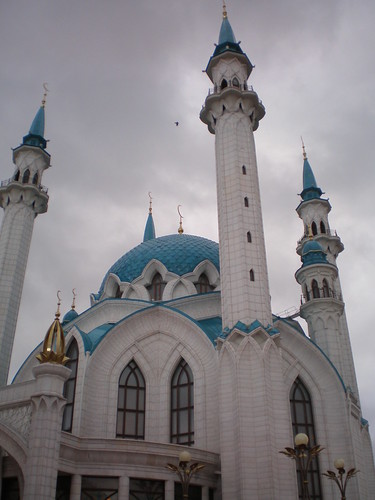
Published on January 28th, 2010, the Economist's "Russia and its Regions: Beyond the Kremlin's Reach" explains the difference between the current situations in two different areas of Russia. The first, Tatarstan, has remained a peaceful part of the country since its integration in the early 16th century. For the past twenty years the region has been governed by Mintimer Shaimiev, and under his leadership the area survived the dissolution of the USSR and the centralization of the Russian government with few economic or social implications. He recently announced his retirement, the timing of which, not coincidentally, coincides with President Dmitry Medvedev's decision to place Rustam Minnikhanov as the next governor of Tatarstan. By choosing Minnikhanov as the successor, Medvedev was "voicing Mr. Shaimiev's wish as much as his own." In contrast, the region of Dagestan is in turmoil. It has recently experienced a surge of Islamic fundamentalism, which has been accompanied by assassinations, car bombings, murders, and fueds between local clans. So, what makes this region different from Tatarstan? Both are Muslim regions within Russia. But, unlike Tatarstan, Dagestan was colonized in the late 1800s, and due to Russia's emphasis on violence and forced obedience, it was never fully assimilated. After two brutal wars the region finds itself governed by Ramzan Kadyrov, a "kremlin backed strong man with his own small army." Medvedev installed Alexander Khloponin in an effort to gain control of the region, but it is doubtful that he will be able to curb the violence. So, Tatarstan does relatively well with little influence from the Kremlin, but Dagestan's difficulties are increased because of it. "Mr Putin’s centralization of power has made Russia more autocratic but it has not made it better governed."
Russia's issues with the centralization of power link to the ideas of power, authority, and sovereignty. These three concepts are fueled by a government's legitimacy. In Tatarstan the people trust in their local leaders to lead them on the right course, because the area has remained prosperous due to the decisions of the government. However, in Dagestan the people have no faith in their leaders, and are therefore taking action to change the way things are run. This conflict is also creating tears within the government. Some politicians believe that Russia should grant Dagestan and its surrounding areas (Chechnya and Ingushetia) autonomy, while others wish to keep a firm grasp on the region. Now the government must utilize public policy to best govern this volatile area, while continuing to build up the rest of the vast country.
Grade This Post
Shawna Taets







